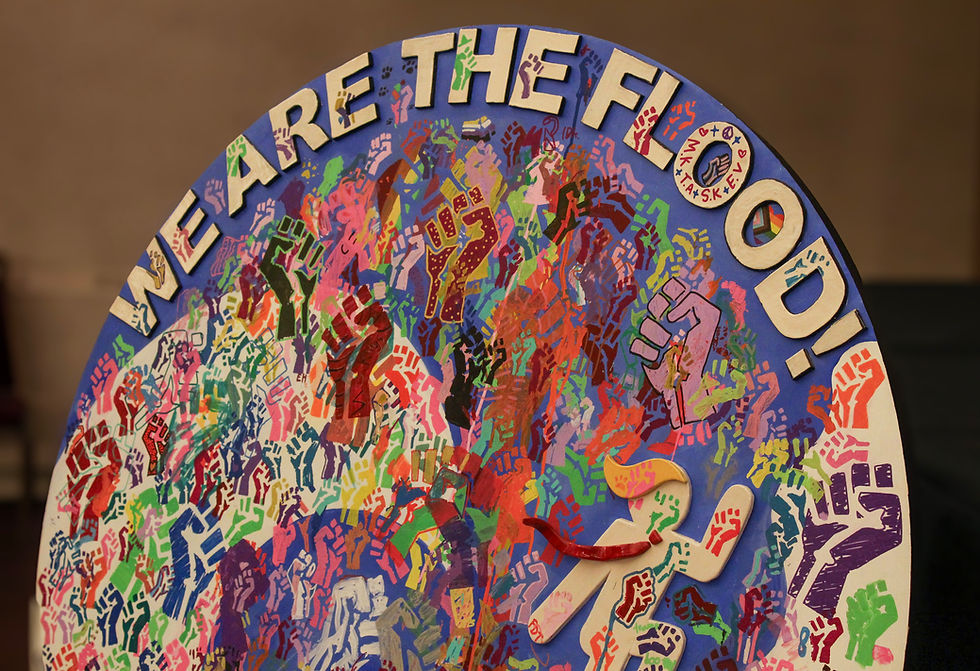Community-Service Learning works with local organizations to offer volunteer opportunities
- Alan Cohen, Staff Writer
- Dec 6, 2023
- 3 min read

The Salem community and many families across the nation are being impacted by financial hardship, adverse weather conditions, lack of access to education or food, and other challenges. In addition, the homeless population in Marion and Polk counties surpassed 1,100 in 2020, many of whom are facing extreme challenges during the cold weather months. On-campus organizations like Community-Service Learning (CSL) and local nonprofits are organizing and participating in volunteering events and social activities to give back to the community, especially as weather conditions worsen.
Assistant Dean for Civic Engagement Tommy Van Cleave stated that there are many volunteering opportunities near the Willamette campus, as Salem is the capital of the state so many nonprofits maintain their headquarters here. He added that CSL works around community aims like welcoming new neighbors such as immigrants or people with refugee status, sustainability and other goals. “If there is something that [students are] passionate about, I would bet that Salem has a nonprofit that focuses on that,” he commented.
Some of the organizations that CSL works with are Salem for Refugees, the ARCHES project, Church@thePark, Center 50+, Bush Elementary School and the Family YMCA of Marion and Polk Counties, most of which are located within a mile distance from the Willamette University campus.
During this season, Van Cleave stated, “I am particularly concerned about our neighbors who are living without heat.” To address this issue, many organizations in Salem are prioritizing services for the homeless population as the weather gets colder. For instance, CSL is organizing a coat drive for students to donate unused jackets and coats to Salem for Refugees and HOME Youth Services.
Notably, Salem is currently facing budget issues that affect its response to homelessness and other challenges faced by the population. The budget shortfall is unlikely to be resolved anytime soon after Salem voters overwhelmingly rejected a new payroll tax on Nov. 7 which would have increased the budget for homeless services, the fire department and the Salem police.
Addressing students, Van Cleave continued, “Even if Salem is not your place of origin, Salem is home for however many years you are here, and with that comes a responsibility to do our part as a good neighbor.” He also pointed out that volunteering has many benefits, including building empathy, contributing to learning and development, and expanding understanding of other cultures and communities.
Van Cleave recommends students interested in volunteering to come by the CSL office, located on the second floor of the University Center. He also encourages clubs to meet with CSL, as they have a thorough understanding of the pressing challenges that affect Salem residents as well as the ability to connect organizations together. Students and organizations interested in volunteer opportunities can also request resources from CSL, such as bus passes, tools or other equipment. “Each of our [student] leaders is responsible for designing a community service experience once a month, so there is plenty to choose from,” Van Cleave added.
CSL employs Catalysts and Lead Catalysts, which are student leader positions that work towards a community goal and organize service events regularly with other staff and community members, among other responsibilities. Brooke Proctor (‘26) is the Lead Catalyst on the category of welcoming new members, which works with refugees and people new to the United States. She stated that despite having grown up near Salem, she was not very familiar with local nonprofits and volunteer organizations before working with CSL. “I love our community organizations, and I think [volunteering] is a great experience for any Willamette student to do,” she said.
Lauren Meekins (‘24) is also a Lead Catalyst, and most of their work is centered around climate justice. “Being able to learn from [local organizations] and work with them is very enriching, and that is something that our office and Tommy [Van Cleave] have brought to campus,” they stated. Meekins also emphasized the importance that lies in students getting out of the "Willamette bubble" and getting to know local organizations and working towards goals for the broader Salem community. “[CSL] made me get involved in ways that I didn’t think were possible before, and I get to see a lot of beautiful things that I wouldn’t have otherwise,” they added.
Van Cleave concluded by reminding students of the importance of reaching out to experts and specialized nonprofits for guidance on volunteering and working with the community, to avoid doing work that is ineffective or unproductive. “There are experts in your community who have been doing this for decades. Trust their expertise, ask them what they need, and do what you can with what you have.”




Comments